
- For PC
- For MAC
- For Linux
- OS: Windows 10 (64 bit)
- Processor: Dual-Core 2.2 GHz
- Memory: 4GB
- Video Card: DirectX 11 level video card: AMD Radeon 77XX / NVIDIA GeForce GTX 660. The minimum supported resolution for the game is 720p.
- Network: Broadband Internet connection
- Hard Drive: 23.1 GB (Minimal client)
- OS: Windows 10/11 (64 bit)
- Processor: Intel Core i5 or Ryzen 5 3600 and better
- Memory: 16 GB and more
- Video Card: DirectX 11 level video card or higher and drivers: Nvidia GeForce 1060 and higher, Radeon RX 570 and higher
- Network: Broadband Internet connection
- Hard Drive: 75.9 GB (Full client)
- OS: Mac OS Big Sur 11.0 or newer
- Processor: Core i5, minimum 2.2GHz (Intel Xeon is not supported)
- Memory: 6 GB
- Video Card: Intel Iris Pro 5200 (Mac), or analog from AMD/Nvidia for Mac. Minimum supported resolution for the game is 720p with Metal support.
- Network: Broadband Internet connection
- Hard Drive: 22.1 GB (Minimal client)
- OS: Mac OS Big Sur 11.0 or newer
- Processor: Core i7 (Intel Xeon is not supported)
- Memory: 8 GB
- Video Card: Radeon Vega II or higher with Metal support.
- Network: Broadband Internet connection
- Hard Drive: 62.2 GB (Full client)
- OS: Most modern 64bit Linux distributions
- Processor: Dual-Core 2.4 GHz
- Memory: 4 GB
- Video Card: NVIDIA 660 with latest proprietary drivers (not older than 6 months) / similar AMD with latest proprietary drivers (not older than 6 months; the minimum supported resolution for the game is 720p) with Vulkan support.
- Network: Broadband Internet connection
- Hard Drive: 22.1 GB (Minimal client)
- OS: Ubuntu 20.04 64bit
- Processor: Intel Core i7
- Memory: 16 GB
- Video Card: NVIDIA 1060 with latest proprietary drivers (not older than 6 months) / similar AMD (Radeon RX 570) with latest proprietary drivers (not older than 6 months) with Vulkan support.
- Network: Broadband Internet connection
- Hard Drive: 62.2 GB (Full client)
The Panavia Tornado is arriving soon as the new rank VIII strike aircraft in three gaming nations with the next major War Thunder update!
Tornado IDS (GR.1), strike aircraft, Britain/Germany/Italy, Rank VIII
Features:
- Variable sweep wing
- Large payload
- Advanced weapons
- Supersonic
In 1968, several countries including West Germany, Canada, Belgium, Netherlands and Italy formed a working group to explore possible options of replacing the F-104 Starfighter that all nations had in service at the time. Since it became very clear right from the onset that different nations had different requirements and needs for a successor aircraft, the decision was quickly made to develop a single multirole aircraft type. Later that year, the UK also joined the working group as the country itself was looking for replacements for older types.
After Canada and Belgium left the working group, the remaining nations proceeded to form an international consortium - the Panavia Aircraft GmbH - which would develop and manufacture the new aircraft. In 1970 however, the Netherlands also abandoned the project as the design was deemed to not fit the requirements of the RNLAF. Despite this, Panavia Aircraft GmbH was formed from parts of the British Aircraft Corporation, Messerschmitt-Bölkow-Blohm and Aeritalia with the workload split evenly between the nations and their respective companies.
At the start of the development work, both a single seat and twin seat option were considered. In the end, the twin seater version prevailed once the design was finalized in 1972 and later on became the Panavia Tornado. By August 1974, the first Tornado prototype took to the skies. Production of the Tornado followed in 1976 and continued until 1998 where 990 units of the Tornado were produced across all variants.
During its service as part of the RAF, the Luftwaffe and the Aeronautica Militare, the Tornado took part in numerous combat operations in Iraq, Bosnia, Kosovo, Libya as well as in smaller conflicts in the Middle East such as in Yemen, Afghanistan and Syria. Apart from the original national operators, the Tornado was also procured by Saudi Arabia as its only foreign operator who commissioned 96 Tornadoes of different variants into service. Excluding the RAF, which retired its contingent of aircraft in 2019, the Tornado still remains in service with its remaining operators to this date - over 40 years after its initial introduction - thus truly withstanding the test of time.
In War Thunder, the Tornado IDS (or GR.1 in service with the RAF) will be the new top strike aircraft awaiting veteran pilots at rank VIII of the British, German and Italian aviation trees following the release of the next major update, Apex Predators. Featuring variable geometry wings and supersonic capabilities, the Tornado might be a strike aircraft by designation but thanks to its incredible versatility, it can certainly get a lot more done than that! Let’s get to know the famous ‘Tonka’ a bit better, shall we?
The Tornado IDS joins the club of aircraft in War Thunder outfitted with variable geometry wings, also called ‘swing winged’ aircraft. Like other aircraft outfitted with this feature, the Tornado can boast its optimal aerodynamics both during subsonic and supersonic flight, thus ensuring excellent handling characteristics at all speeds. Furthermore, the Tornado can easily achieve supersonic flight thanks to its two purpose-built Turbo-Union turbofan engines. As a result, the aircraft can achieve a top speed of around 1,400 km/h at ground level while at higher altitudes the Tornado can accelerate even over 2,300 km/h (Mach 2.2). Thanks to such impressive flight characteristics, the Tornado can quickly get in and out of trouble and also escape pursuing aircraft.
Speaking of combat scenarios, we mentioned earlier that the Tornado is an extremely versatile aircraft, but how exactly? Apart from its excellent flight characteristics that bring it on par with some interceptors and fighters, it's also due to its lethal weapons arsenal. Upon obtaining the aircraft, pilots will have access to a pair of 27mm cannons with 180 rounds of ammunition available per gun. Now while these guns are certainly useful for strafing ground targets and blasting enemy pilots out of the sky during intense dogfights, they alone don’t define the Tornado’s arsenal.
What does however, make the Tornado’s armament stand out is its selection of suspended ordnance options. These range from later models of the AIM-9L Sidewinder air-to-air missile over laser-guided bombs to more conventional freefall bombs of various calibres. Such a diverse arsenal allows the Tornado to not only inflict great damage to hostile ground troops but it can almost immediately switch to combat air patrol duties and provide air cover for its allies once the strike weapons have been expended.
The various modifications of the Tornado IDS will be making their way to the top rank of the British, German and Italian aviation trees with the arrival of the next major War Thunder update, Apex Predators. In the meantime, make sure to keep scanning the horizon for more news as we continue unveiling what else the upcoming update has in store for our players. Until then, clear skies and happy hunting pilots!
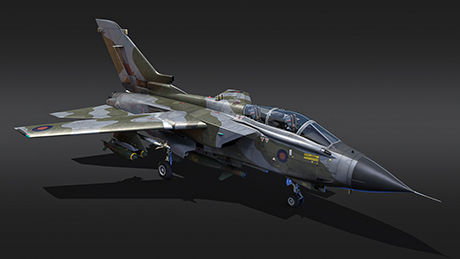
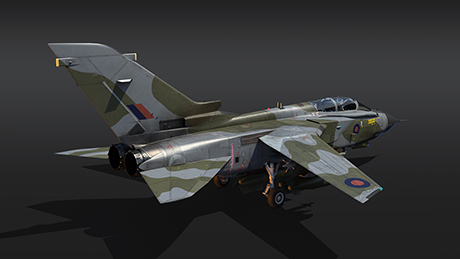
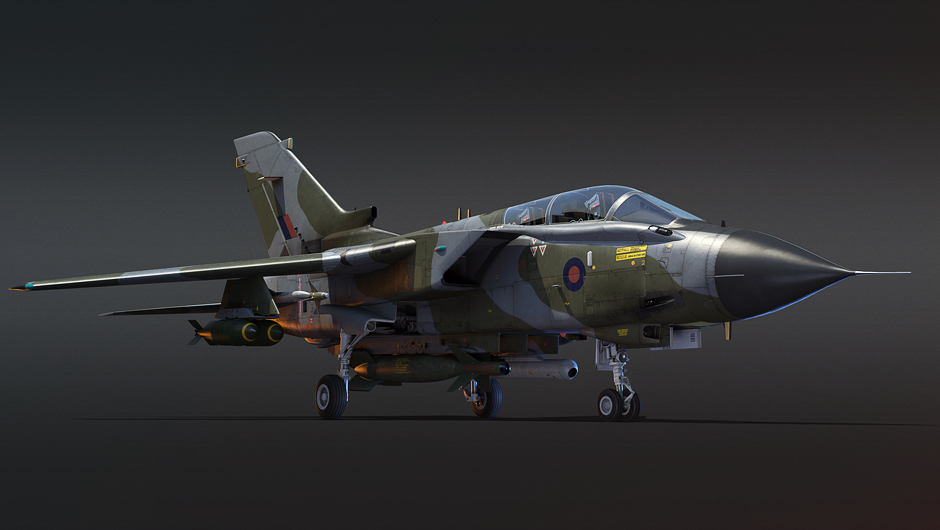
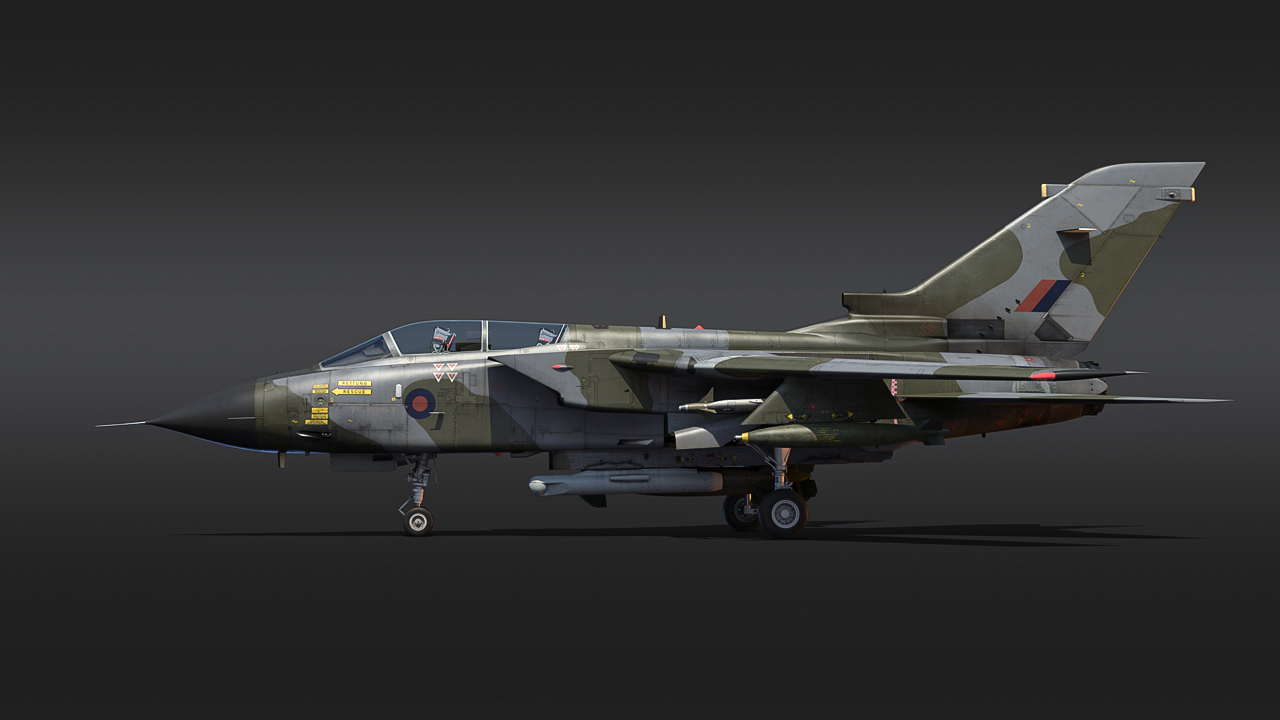
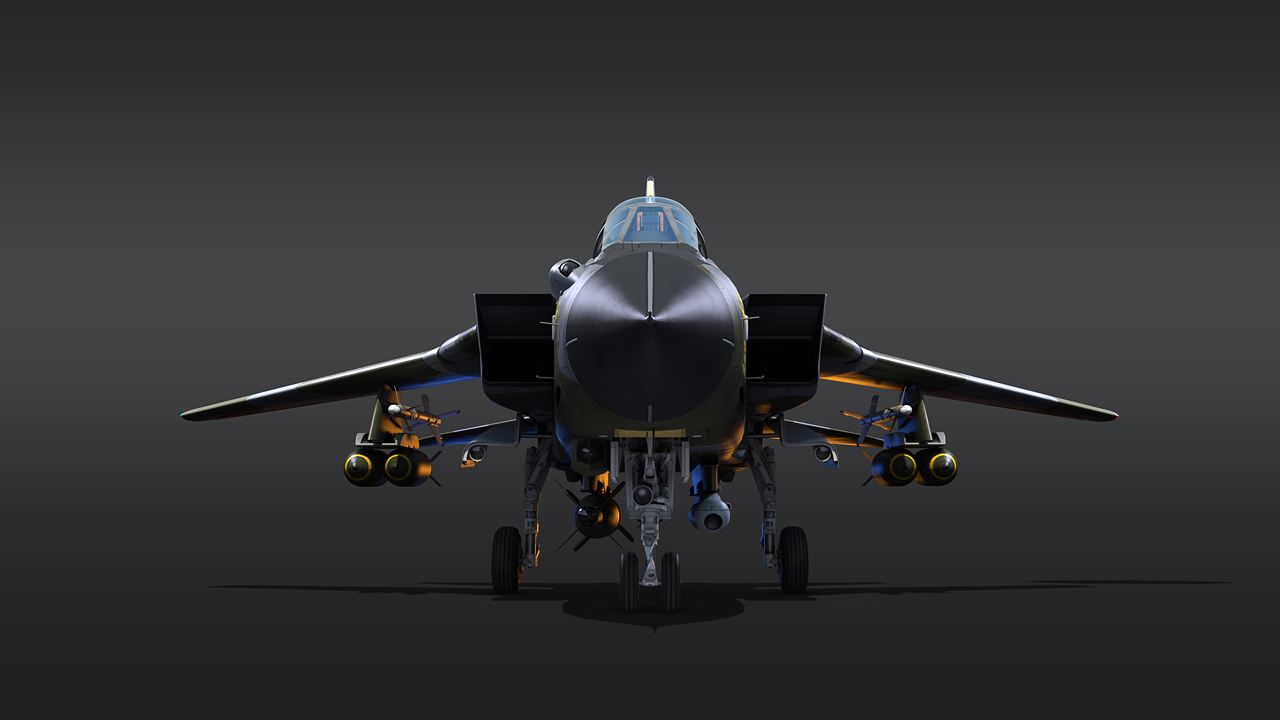
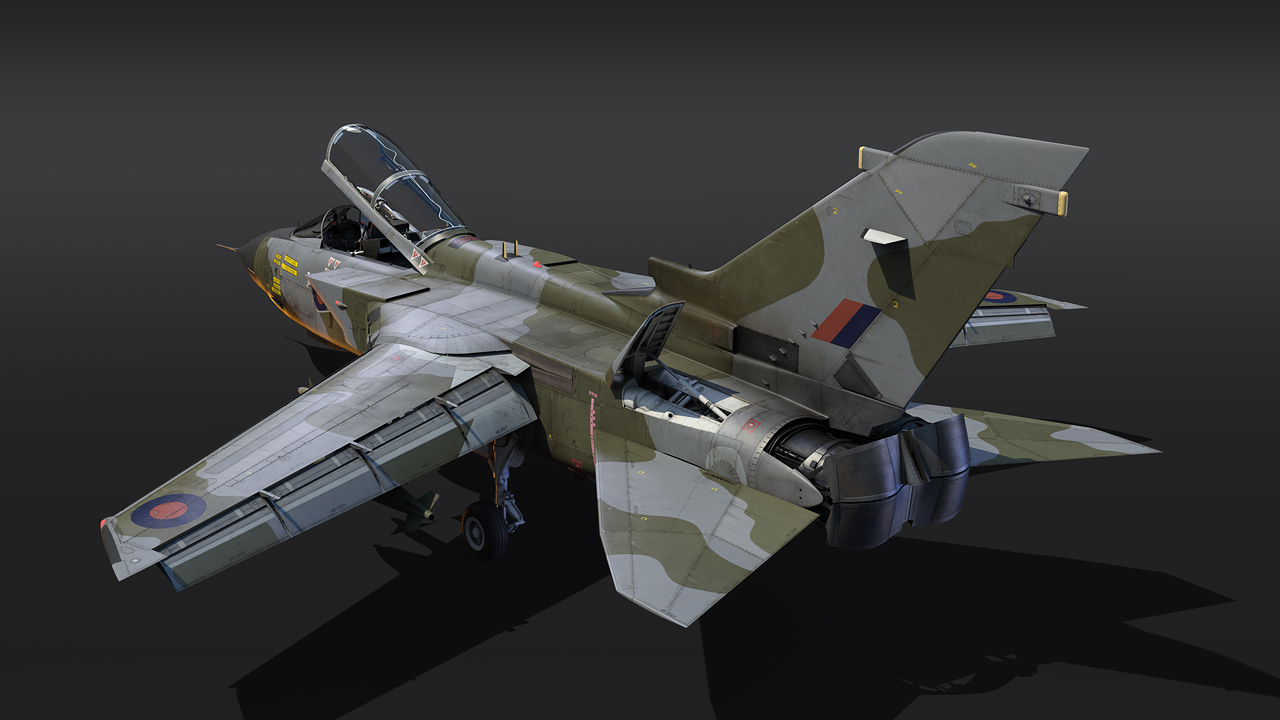
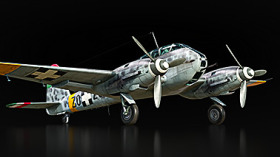
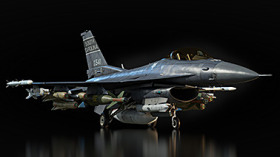
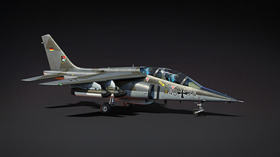
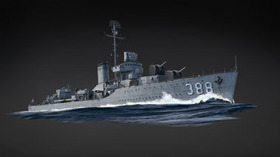
Comments (79)
Comments will be premoderatedWonderfull! I just have to wait for the amx international amx (Ghibli).
So are they going to add the rest of the payloads it could carry because the the tornado gr1 ids could carry a lot more then what there showing in arnemants then this atm
Will Germany be getting a Tornado as well? Im quite disappointed in the 70 dollar Mig 21 that is being offered and im hoping the main tree will finally start receiving some West German jets.
Submit a complaint